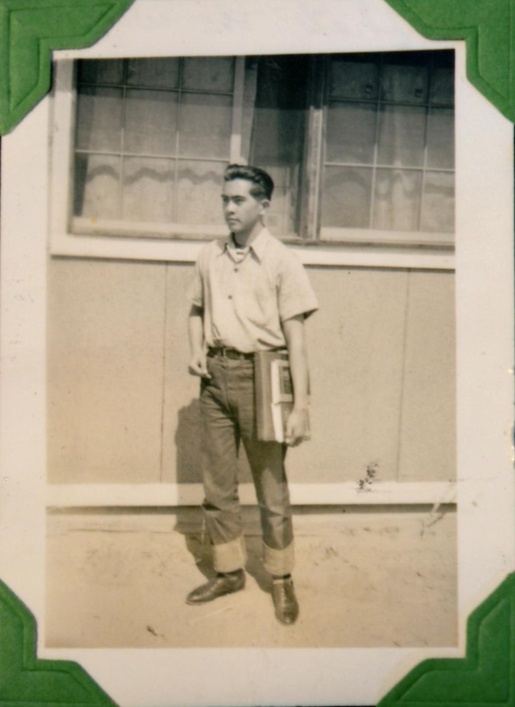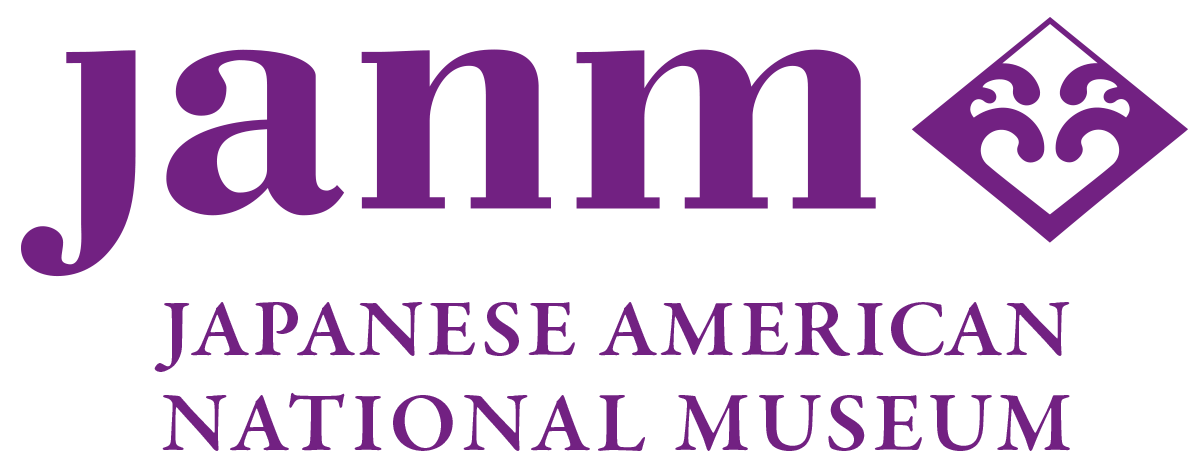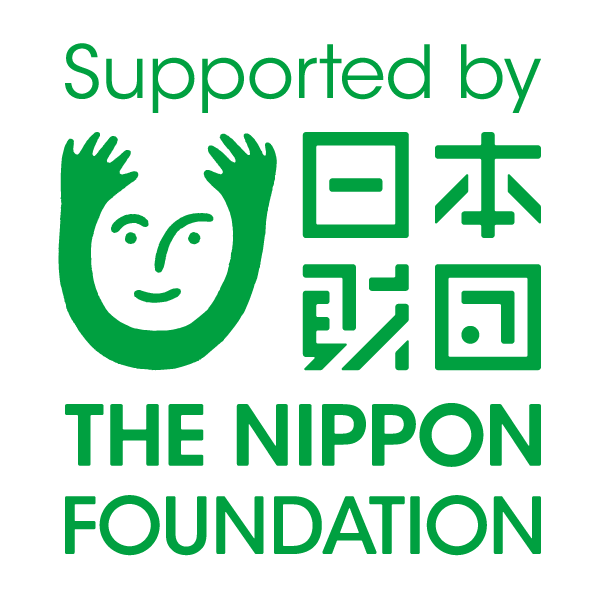
|
||
 Download
Download
|
Licensing | |
Noboru Hashimoto Phone Interview
Wednesday, May 10, 2017, 7:30 p.m.-8:20 p.m.
Edited with Nob's corrections
FP: How old were you when you were sent to Amache in 1942?
NH: 15
FP: Where did you live before Amache?
NH: Winton
FP Who was in your family?
NH Parents Juichi and Chiyoko Hashimoto; my brothers were Fred, William and Ben and my sister was Sumiko.
FP What did your family do for a living before Amache?
NH Farming - boys helped; growing grapes, almonds, just bought land 40 acres planted peaches a year before evacuation
FP Did you get a peach crop in?
NH When we came back from Amache, Mennonite family leased the land and had peach crop on return. The Mennonites returned the land to us in Jan 1945 - he handed it over, and I started to prune the grapes. The Mennonites were friends of my older high school brother [Mennonites have no TV; ok to have computers,no radios]. I farmed until 1980 and then a drove truck, I kept the house, but came to retirement community, so wife wouldn't have to cook any more [now 90 and half years old].
FP Where in Japan did your grandparents come from?
NH Hiroshima
FP When and why grandparents came?
NH My father's side, grandpa came to Hawaii, worked in cane field then moved to States and worked on the Yosemite RR, when that was finished, he moved to another community north--Winters-- and farmed fruit until 1936, retired and most Issei wanted enough money to build a house; aliens could not own land - he went back to Hiroshima - was there during the bombing. Built a brand new house. Atom bomb blew house away with Grandma in it.
The other side of the family, mother's side, was bigshot at City Hall in Hiroshima City. All our kin were gone from the bomb except Grandma who lived to age 106.
FP How did they choose California to live
NJ I don't know why
FP How were you treated by non-Japanese in your area? any discrimination?
NH Quite a bit of discrimination because the land around place called Dell Hi, Ballico was homesteaded by WW I vets, given to farm, too sandy -so they were prejudiced people, b/c they were trustees of our school. When my sister graduated grammar school, she had best grades, but they didnt want her to be valedictorian, chose Portuguese to speak. My sister was quite upset, Dad said can't do a thing about it; even the Portuguese girl told her that sister was getting best grades. Portuguese guys were pretty rough,they didn't like us, they were bullies, so we had to keep our mouths shut. It was discrimination but it was there - Lots of Portuguese around here, they were dairymen, good farmers - but pretty rough and all in high school were football players - bullies. Us guys wer 120 pounds -
We were a Chrstian community - we had a Japanese school, if you were Buddhist, they learned Japanese language and had judo clubs and bon odori - but our community was just one church so we were more Americanized than other communities; so I know they had kendo I was too young for it, but other than no judo, a lot went to Boy Scouts. One of the things the Kendo instructors told them was to get out of Scouts, wanted them to be in Kendo - wanted to make us like Japanese soldiers loyal to the emperor. My 3 brothrs joined but were told to get out of Scouts. You had to bow to them in morning - like Army officers. It was discrimination from grade school to high school
The high school of 400 and the Japanese were 100 of the class. The Livingston community was called the Yamato Colony, the newspaper man in San Francisco bought a bunch of cheap land here, was sandy ground here - Yamato Colony- and put up this Methodist church, told them don't work so hard, the whites will hate you b/c they don't work so hard. We had about 60 families -
FP What happened to the Yamato colony? still there?
NH Methodist integrated with white town church.
NH We always had a cooperative, right now not many Nisei left, and a handful of Sansei still farming, most of those left for good jobs - do not farm...used to be the whole area was owned by Isseis/Niseis --10 Sansei still farm. The cooperative is all white people.
FP Do they grow grapes, peaches - almonds, the same crops as before Amache?
NH Grapes growing out of style, always went to wine. Now almonds. Peaches are too much labor. Mostly almonds. 80% of crop sent overseas to Japan and India is big buyer, get $5 a pound - high price
FP In Amache, what was your block number?
NJ 7G, barrack 3C and D. My parents and sister lived in room C, the 4 boys in room D. In 4 months, 3 brothers left for college. Had room all by myself.
FP Do you have any photos of Amache time?
NH Yeah, we have baby Brownie pictures. I make copies of pictures to send to people
FP When you first got to Amache, what did you do?
NH Got a job - working for Housing Department, most of the camp wasn't made. We took the second train out of Merced Assembly Center. Only the barracks in our block were made. Blocks 9, 10,11-12 were not made yet. I helped build; distributed canvas cots, unfold like camp cots, unstack them and undo them, stretch them out,throw mattress on and one blanket for each bed and a coal bucket and blankets - I did this before school started, later on the same job I was kind of a runner, the Office said go check this room b/c too many signed up, find out who is living there, find a bigger room for them; about time school started I got a job washing dishes in 8 G - I did this for rest of time, we had 6 buddies, we had a crew washing 3 times a day, go to shcool and back to wash dishes; made $16- a monnth - Doctors only got $18 month
FP What could you do with money in Amache?
NH canteen - bought ice cream cones, I was always hungry, got pastries,
FP What do you remember most about Amache?
NH I remember the discipline our fathers used to do at home, in camp everyone sat with their own friends, students sat together;no more family discipline like before the War, when the father, we ate, that's the time father made his law - we talked about school, when someone went to jail; it was the Depression and Issei went to jail for over writing checks....other families their kids were juvenile delinquents, head of the family disciplined the family, that was something missing in camp; Kids sat with their own group and some got pretty wild, that's one thing I remember. These fathers used to work sun up to sun down - now they had nothing to do - We were afraid of our Issei parents because they were so rough and gruff, they had no use for bad kids were playing Chinese checkers and enjoying ourselves in camp, and they were standing around doing nothing - they joined in and played and beat us, they were real nice guys --friendly, just ordinary people - we thought they were rough gruff, but they were real nice Issei
FP When did you leave Amache?
NH When I was a senior, didn't have enough points to graduate in winter like most of my friends did. My dad bought a farm in Greeley CO and he wanted me to work out there, so principal said you can correspond one English class, he made me buy a book at the store - there were quizzes in the book, I took class and graudated in Jume. I left January 1944 - to work on the farm in Greeley and handed in weekly reports. My dad let me go back to camp to graduate with the senior class. Dad bought the farm for my oldest brothers, could be deferred from the draft if you worked on a farm. Thousands of Niseis avoided draft by farming
I left Amache to farm, at age 17 [too young to worry about draft]. Colorado farming was different from California farm; we grew cabbage, sugar beets and onions in CO - in the fall when school started, I figured I'd turn 18 in December, I'll try college a little bit b/f I get drafted. I went to state college for one semester, when I turned 18 in December. In January, they let us go back to California. We went back to California and I started pruning grapes the day I got back. I think the California farm was in my oldest brother's name; Issei father could not own land by law.
I'm mad that I didn't learn to play tennis or basketball in camp, we just worked on the farm. We had time in camp then. There was no judo etc either unless you came from a certain town. You had to be friends of the scout leader to be in scouts, only the talented people played baseball - each community had a baseball team, the older boys played, I was too young
FP Have you kept in touch with Amache friends?
NH Try to go to all the reunions; that's the only time you meet them other than local friends. I met a few in the army - these were the Min Tonai reunions - Colorado Springs we had a bus touring Amache, that was a good reunion
FP What do you tell your children/granchildren about Amache years?
NH They don't ask, they're not too interested. They all have good jobs, oldest one doctor, engineer, pharmacist - they don't worry about anything - right in with middle America; Camp is ancient history. Second son is an engineer makes $320,000/yr. They didn't face the discrimination the Issei & Niseis did. They think we acted like sheep so we were shorn. Most of the Niseis were age 20-25, didn't know much about politics and civil rights.
Amache was great for the Niseis in that now they could look over thousands of eligible girls to be girlfriends or marry. Not so with my age group. Most of my age were the last in the family. The Depression started after we were born so the Isseis already had big families so there weren't too many young girls after our age.
I didn't learn till 20 years ago why my brothers had English names and my sister and I didn't get any. 1924 Immigration Law, my folks probably thought all Japanese was gonna get kicked out. You don't want English name in Japan.
 mhomma
—
Last modified Sep 15 2017 7:59 p.m.
mhomma
—
Last modified Sep 15 2017 7:59 p.m.
Part of these albums

|
Amache Stories and Memories mhomma
mhomma
|

|




 Amache Stories and Memories
Amache Stories and Memories The Schmoe House, Houses for Hiroshima Project, Grand Opening Ceremony - Hiroshima, Japan
The Schmoe House, Houses for Hiroshima Project, Grand Opening Ceremony - Hiroshima, Japan May 2011 Japan Tsunami Relief Mission trip & Follow up visit in Oct 2012
May 2011 Japan Tsunami Relief Mission trip & Follow up visit in Oct 2012 Baptist Churches in Pre-WWII Imperial Japan
Baptist Churches in Pre-WWII Imperial Japan Moneta / Gardena Valley Baptist Church (1930-1940)
Moneta / Gardena Valley Baptist Church (1930-1940) Heart Mountain Photos from Michihiko Wada
Heart Mountain Photos from Michihiko Wada Incarceration Years: Lordsburg/Santa Fe, Seagoville, Amache Camp Photos and DOJ Documents
Incarceration Years: Lordsburg/Santa Fe, Seagoville, Amache Camp Photos and DOJ Documents
 Journal feed
Journal feed
